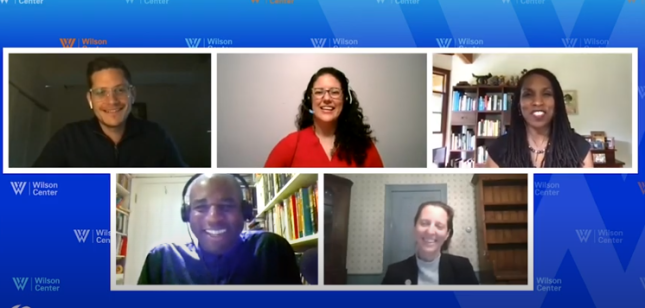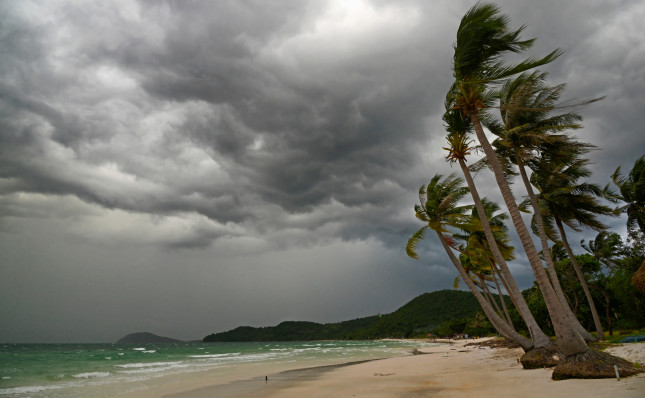-
A Conversation with Marisa O. Ensor on Securitizing Youth and Youth’s Role in Peace and Security Agendas
› “I’ve been quite impressed by the wide diversity and complexity of young women’s and men’s engagement for peacebuilding and development often while confronting seemingly insurmountable challenges,” says Marisa O. Ensor, Adjunct Professor in the Justice and Peace Studies Program at Georgetown University, in this week’s Friday Podcast.
“I’ve been quite impressed by the wide diversity and complexity of young women’s and men’s engagement for peacebuilding and development often while confronting seemingly insurmountable challenges,” says Marisa O. Ensor, Adjunct Professor in the Justice and Peace Studies Program at Georgetown University, in this week’s Friday Podcast. -
The Top 5 of February 2021
›
Collapsing ice shelves raised concerns in 2020, but the immediate effects of climate change in the polar regions are merely the tip of the iceberg, write Olivia Popp and Michaela Stith in this month’s top post. What happens in the polar regions doesn’t always stay in the polar regions—it has profound effects on climate and communities around the world.
-
A Conversation with Steven Gale on USAID’s New Foresight Unit
›
“I think most people will agree today that the development landscape is, well, it’s highly uncertain, it’s increasingly complex,” says Steven Gale, Lead of the Futures/Foresight Team at the U.S Agency for International Development (USAID), in this week’s Friday Podcast. “I think the future is even going to be more complex.”
-
The Top 5 Posts of January 2021
›
The nature of climate risks complicates efforts to pinpoint and articulate climate’s impact on conflict. In January’s top post, Peter Schwartzstein draws on years of environmental reporting across the MENA region to share examples of how environmental and climate changes are driving conflict in areas where the climate angle isn’t immediately obvious.
-
Valerie M. Hudson on How Sex Shapes Governance and National Security Worldwide
› “The very first political order in any society is the sexual political order established between men and women,” says Valerie M. Hudson, a University Distinguished Professor at Texas A&M, in today’s Friday Podcast, recorded at a recent Wilson Center launch of the book, The First Political Order: How Sex Shapes Governance and National Security Worldwide. Co-authored by Hudson, Donna Lee Bowen, Professor Emerita at Brigham Young University, and P. Lynne Nielson, a statistics professor at Brigham Young University, the book investigates how the relationship between men and women shapes the wider political order. “We argue, along with many other scholars, that the character of that first order molds the society, its governance, and its behavior,” says Hudson.
“The very first political order in any society is the sexual political order established between men and women,” says Valerie M. Hudson, a University Distinguished Professor at Texas A&M, in today’s Friday Podcast, recorded at a recent Wilson Center launch of the book, The First Political Order: How Sex Shapes Governance and National Security Worldwide. Co-authored by Hudson, Donna Lee Bowen, Professor Emerita at Brigham Young University, and P. Lynne Nielson, a statistics professor at Brigham Young University, the book investigates how the relationship between men and women shapes the wider political order. “We argue, along with many other scholars, that the character of that first order molds the society, its governance, and its behavior,” says Hudson. -
The Top 5 Posts of December 2020
›
Approximately 200,000 women in the U.S. are incarcerated—a nearly 800 percent increase over the past forty years. An often overlooked aspect of the increasing rates of women’s incarceration is its impact on women’s sexual and reproductive health needs. In our top post this month, the Maternal Health Initiative’s Hannah Chosid writes about the overlooked needs and barriers to incarcerated women’s reproductive autonomy.
-
“Multilateralism is Back!” Climate Change, Equity, and 21st Century Diplomacy
›
“Climate change will upend the 21st century world order. From financial systems, migration patterns, and great power competition, to the potential unintended consequences of climate responses, and issues of inequity and the future of democracy, climate change will penetrate our systems, our relationships, and our lives in ways that we have yet to fully understand,” said Lauren Risi, Director of the Wilson Center’s Environmental Change and Security Program, at a recent event co-hosted by the Wilson Center and adelphi. The panel discussion focused on two topics addressed in the recently launched 21st Century Diplomacy project—how efforts to address climate change will engage new modes of multilateralism and how to incorporate the increasingly urgent calls for a more equitable and just world.
-
The Top 5 Posts of November 2020
›
A powerful method for communicating and examining uncertainty, scenario planning has come to the fore in discussions on how to address COVID-19. As scenario planners continue to map the potential consequences of COVID-19, they are finding much in common with risk managers, who use past data to identify and forecast external threats. In our top post this month, Steven Gale suggests that it’s time for scenario planners and risk managers to align and join forces to produce a single foresight capability.
Showing posts by Amanda King.


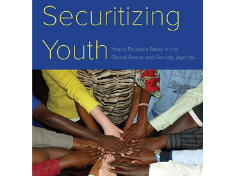 “I’ve been quite impressed by the wide diversity and complexity of young women’s and men’s engagement for peacebuilding and development often while confronting seemingly insurmountable challenges,” says Marisa O. Ensor, Adjunct Professor in the Justice and Peace Studies Program at Georgetown University, in this week’s Friday Podcast.
“I’ve been quite impressed by the wide diversity and complexity of young women’s and men’s engagement for peacebuilding and development often while confronting seemingly insurmountable challenges,” says Marisa O. Ensor, Adjunct Professor in the Justice and Peace Studies Program at Georgetown University, in this week’s Friday Podcast.
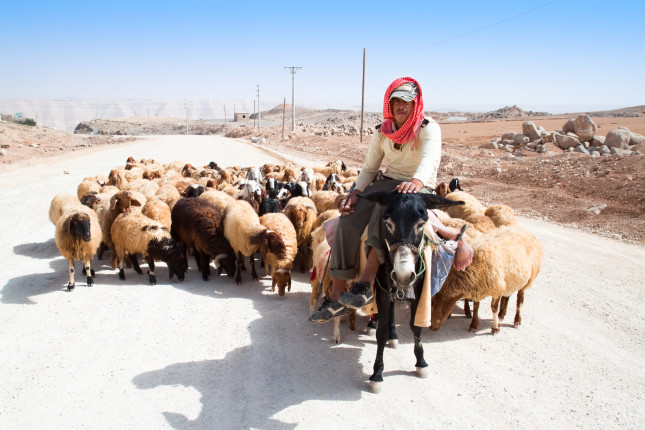
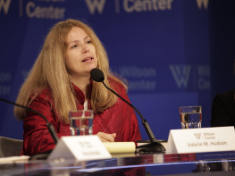 “The very first political order in any society is the sexual political order established between men and women,” says Valerie M. Hudson, a University Distinguished Professor at Texas A&M, in today’s Friday Podcast, recorded at a recent Wilson Center launch of the book,
“The very first political order in any society is the sexual political order established between men and women,” says Valerie M. Hudson, a University Distinguished Professor at Texas A&M, in today’s Friday Podcast, recorded at a recent Wilson Center launch of the book, 
